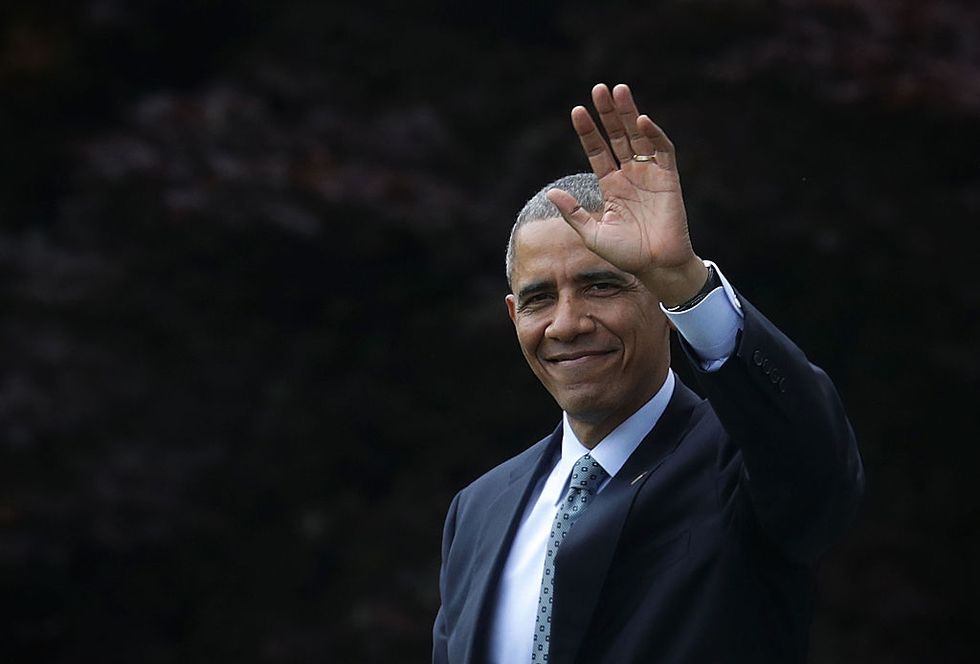By Bonnie Kristian
A new Rasmussen Reports poll says U.S. voters "now consider Syria important to U.S. national security."
But it also say that voters show little interest in getting more involved.
 Kentucky Sen. Rand Paul at a rally in Council Bluffs, Iowa. (AP Photo/Jae C. Hong)
Kentucky Sen. Rand Paul at a rally in Council Bluffs, Iowa. (AP Photo/Jae C. Hong)
A rising majority of Americans, 55 percent, believe Syria to be of vital national security interest, only a third, 34 percent, want the United States involved in the Middle Eastern country’s ongoing turmoil, with the rest likely favoring a solution accomplished by Syria’s nearby neighbors.
This disconnect is exemplary of the rampant confusion which swirls around our understanding of exactly what constitutes an immanent and/or vital threat — a confusion which plunges American foreign policy into a dangerously nebulous vocabulary that enables the abuse of executive power.
By definition, an imminent threat ought to be one which is immediate, about to happen: Think foreign troops actively marching toward our border, or a nuclear missile ready to launch and aimed at New York City. A vital threat, or a vital national interest, must be existential in nature: If we don’t stop X attack or protect Y asset, our nation might cease to exist. Think, for instance, of how a nuclear-armed North Korea might threaten South Korea due to its close proximity and considerable animosity.
Given America’s immense natural advantages — we are geographically isolated from the most violent places in the world; we have friendly immediate neighbors and numerous allies; our military is stronger than the next seven or eight combined — it is difficult to imagine plausible, vital threat to the United States.
Yet these inconvenient truths don’t stop Washington from suggesting just the opposite.
To hear many politicians tell it, the most powerful and safest country in the world should be scared of everything, everywhere, all the time. This un-American fear is a useful tool for a government eager to stretch our military thin and reach deep into taxpayers’ pockets by incessantly intervening all over the world.
By labeling every scary thing as an “imminent” and/or “vital” threat to the United States, our politicians — and particularly the executive branch — convince Americans to back military interventions into situations which pose no immediate threat to our safety and unquestionably are incapable of threatening our existence as a nation.
Messy language makes bad policy, and bad policy gets Americans killed without cause.
This sleight of hand is accomplished in significant part because of congressional abdication of foreign policy responsibility, as Sen. Rand Paul (R-Ky.) argued in a recent Senate hearing with former Secretary of State James Baker, who served under President George H.W. Bush.
Paul made the case to a sympathetic Baker that the worst way to decide what counts as a vital threat is to let the White House make that decision all by itself.
“What becomes important there is that Congress have a role in this, because our Founding Fathers didn’t want to give all the power to the executive,” he said.
“Particularly with Libya,” Paul continued, Obama “should have come and asked. My guess is [the congressional debates] would have been very messy, but maybe we wouldn’t have gone into Libya. Gaddafi might still be there; we might still have problems; but there wouldn’t be chaos.”
There also might not be occasion for a second round of American intervention, an entanglement scheduled to begin any day now, which promises to be as just disastrous as the first.
Of course, Paul went on to say, everyone concedes the exception of a truly imminent threat. If our hypothetical nuke is heading toward New York City, even the staunchest constitutionalist will not demand the Senate convene for debate about how to respond.
But the nature of an eminent threat is also wildly misused by the White House in service of its own purposes, including evasion of constitutional balance of power. “When I questioned [Obama] on Libya,” Paul noted, “he said, ‘Yes, there was an imminent threat — to Benghazi.’ And I was perplexed by that answer because I always thought an imminent threat was to the United States, not to a foreign city.”
“If we make the standard that an imminent threat to any city around the world would be [enough for] the president to unilaterally begin a war — because any city around the world was under imminent threat — I think that would be a standard that would be absurd.”
Paul is right. Unfortunately, the perpetual misuse of these terms creates just such an absurd situation, making it easy for a lazy Congress and imperial presidency to run ever more amok. If anything, this manipulative deception about the threats we face is the true danger to U.S. security, pushing Americans to accept unnecessary wars of choice which won’t keep us safe.
Bonnie Kristian is a fellow at Defense Priorities, contributing writer at The Week, and a columnist at Rare.
–
TheBlaze contributor channel supports an open discourse on a range of views. The opinions expressed in this channel are solely those of each individual author.


 Kentucky Sen. Rand Paul at a rally in Council Bluffs, Iowa. (AP Photo/Jae C. Hong)
Kentucky Sen. Rand Paul at a rally in Council Bluffs, Iowa. (AP Photo/Jae C. Hong)


